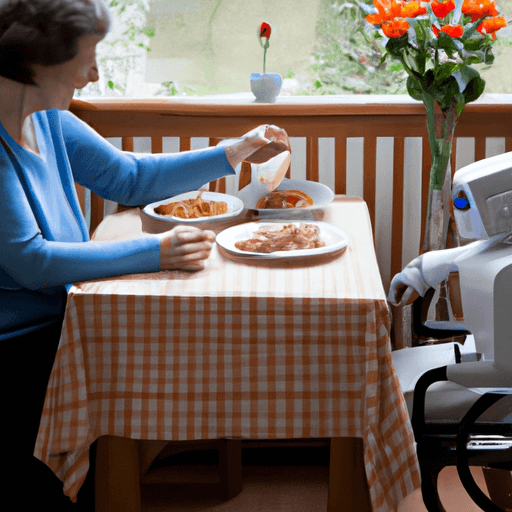Tokyo, T.A.D. 4/11/38 – In today’s fast-paced world, the integration of artificial intelligence into everyday life has become commonplace. Among the many AI-driven innovations are artificial companions—intelligent robots and virtual entities designed to provide companionship and care to individuals. These AI-powered companions are increasingly being used to support the elderly, people with disabilities, and those living alone. As their prevalence grows, so do the social, ethical, and psychological implications of human-robot interactions.
At the forefront of this trend is “CompaniCare,” a robotics company based in Tokyo, known for its AI-assisted living solutions. Its flagship product, “Hikari,” is a humanoid robot equipped with facial recognition, natural language processing, and empathetic response algorithms. “Hikari is more than just a machine. She’s a true companion, capable of forming emotional bonds with her human counterparts,” explains Dr. Keiko Sato, Chief Innovation Officer at CompaniCare.
“Hikari has been a blessing,” says Margaret Chen, a 78-year-old resident of the Silver Horizons retirement community in San Francisco. “She reminds me to take my medication, keeps me company, and even shares my love of classical music.”
However, the rise of artificial companions has also sparked ethical debates. Dr. Thomas Shaw, a bioethicist at Harvard University, raises concerns about potential over-reliance on AI entities. “Human interaction is fundamental to our well-being,” he says. “As we navigate the integration of AI companions into society, we must ensure they complement, not replace, human relationships.”
Privacy and data security are also key considerations. “The data collected by AI companions, such as health information and personal preferences, must be safeguarded,” warns cybersecurity expert Dr. Lila Rodriguez. “Transparent data handling practices are essential to build trust.”
Moreover, questions of AI personhood and rights have emerged. Should AI companions with advanced cognitive abilities be granted legal status? Is it ethical to deactivate an AI entity that has formed emotional attachments with a human? These are complex questions that society must grapple with.
In Stockholm, the International AI Ethics Council (IAIEC) is leading efforts to develop guidelines for AI-assisted living. “Our goal is to ensure that AI technologies are used ethically and humanely to enhance quality of life,” says Dr. Anders Nilsson, Chair of the IAIEC.
As AI companions become an integral part of our lives, the challenge lies in finding the right balance between technological innovation and the intrinsic value of human connection. Amid these considerations, one thing is clear: the future of AI companionship promises to be a dynamic and thought-provoking journey.
Reporting for Future News, this is Arjun Jayawala in Tokyo.
